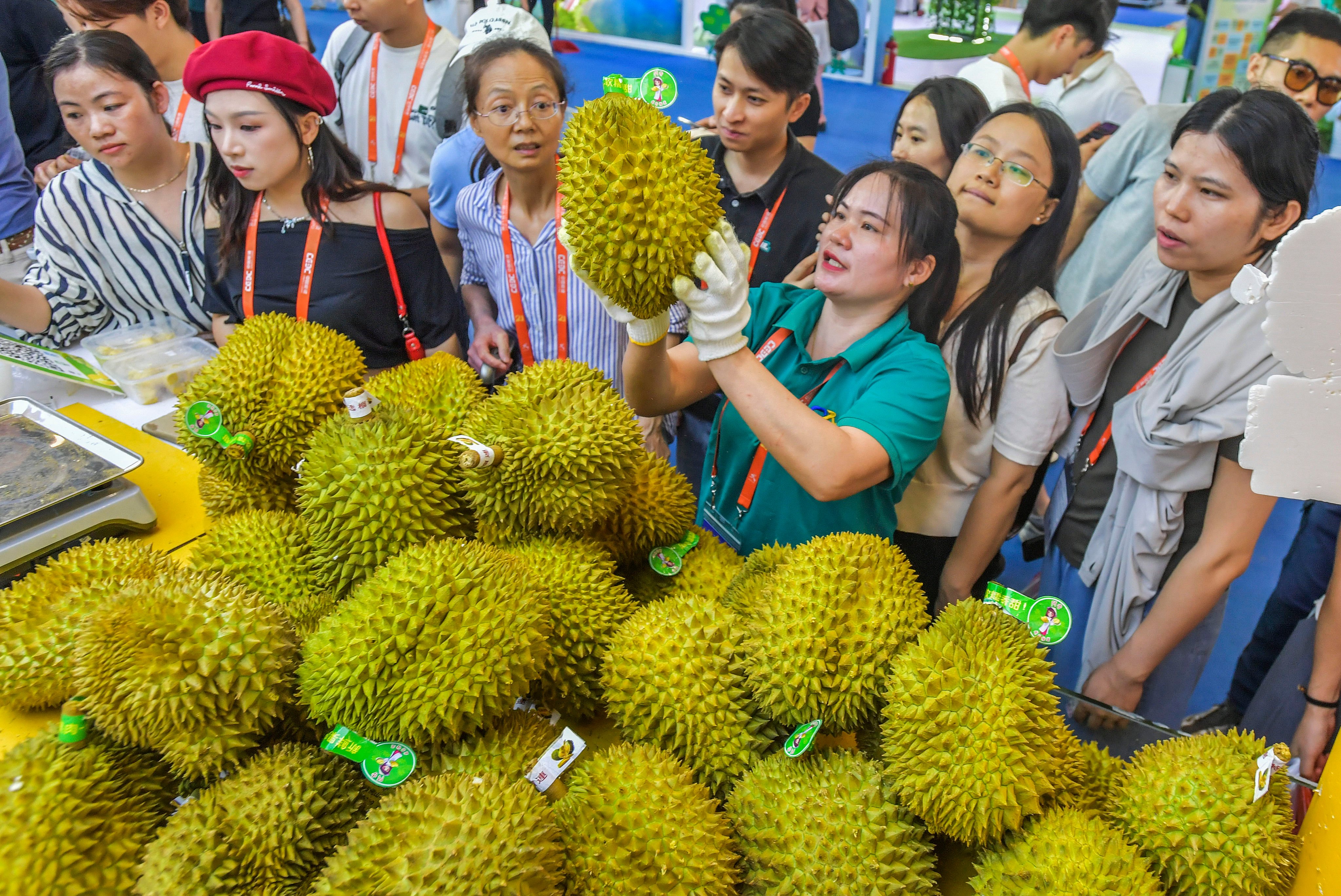How are stricter sanitation checks at border affecting China’s durian imports?
Imports fell by nearly one-third during the first five months of the year, with Vietnamese exporters hit hardest

China’s imports of fresh durians have fallen this year because of stricter sanitation checks at the border, according to people who follow the trade.
The value of fresh durian imports in the first five months of this year fell by 32.5 per cent year on year to US$1.93 billion, according to the General Administration of Customs.
By volume, imports were down 32.9 per cent to 390,900 tonnes.
Hardest hit was Vietnam, which saw nearly 62 per cent year-on-year declines in both the value and volume of durians shipped to China, customs data shows. Vietnam’s shipments totalled US$254 million during the first five months of 2025.
Imports from Thailand fell 24 per cent year on year in US dollar terms over the same period to US$1.67 billion, with a slightly smaller decline in volume terms. Thailand retained its title as China’s top source of imports, followed by Vietnam and other Southeast Asian countries.
Tighter safeguards against pesticides and other sanitation issues have slowed imports, people who follow trade said on Tuesday, adding that exporters might need some time to get used to the new rules.
“Vietnamese growers and traders need to meet the standards,” said Nguyen Thanh Trung, a political scientist at Fulbright University Vietnam. “This year I think they may be affected a lot, but growers and traders will learn.”
China’s customs policy had changed in terms of measuring amounts of pesticide residue against the maximum levels allowable for imports, said Sam Sin, development director at the Hong Kong-based durian exporter S&F Produce Group.
The pungent spiky fruit is big business in China, where a 6kg (13.2lbs) durian can fetch as much as 200 yuan (US$27.87). Dubbed the king of fruits, they are popular with middle-class families as well as dessert makers and givers of gifts for occasions such as weddings.
But Chinese supermarkets have high food safety standards and earlier this year customs officials were inspecting all durian shipments for a toxic yellow dye and any heavy metals, according to VietnamNet, a news outlet affiliated with the Southeast Asian country’s Ministry of Information and Communications.
Nhan Dan, the official media outlet of the Communist Party of Vietnam, said in April that durians shipped to China made up more than 92 per cent of Vietnam’s total durian exports in January last year but just 57.6 per cent this January because China had implemented “stricter controls” on exporting countries.
The reports suggested that China had “tightened customs inspections and quality control” for fruit shipments, said Lim Chin Khee, an adviser to the Durian Academy, a Malaysian institution that trains local growers.
China’s General Administration of Customs did not immediately answer a request for comment.
Huynh Xuan Son, who has been growing durian on 12 hectares (30 acres) of land in the southern Vietnamese province of Binh Thuan for seven years, said many parts of Vietnam do not have local fruit testing laboratories. That shortage led to delays in gaining export approvals, “hurting competitiveness against Thailand”.
Vietnam is a relatively new source of durians for China, which lacks a domestic crop of comparable scale, and analysts said it appeared that some Vietnamese growers were still figuring out export-quality sanitation.
“Thailand moved with impressive speed to establish farm-level testing facilities and quickly restored China’s trust,” said Dan Martin, a Hanoi-based international business adviser with the consultancy Dezan Shira & Associates.
“Vietnamese exporters, however, remain shut out by repeated border rejections stemming from contaminant detection and a glaring lack of screening systems before fruit ever leaves the farm.”